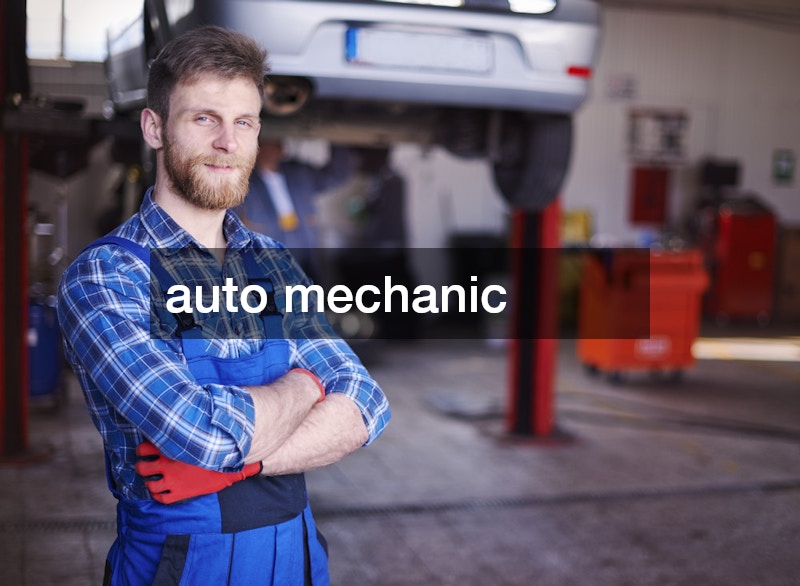
- DIY is great for basic tasks like oil changes, wiper replacements, and air filters—but only when you have the right tools and knowledge.
- Complex or safety-critical repairs (brakes, transmissions, electronics) should always be handled by a licensed and certified auto mechanic.
- Certified mechanics offer expertise, proper tools, and warranty-backed service that protect your vehicle and ensure long-term savings.
- Preventive maintenance by certified professionals can extend your car’s lifespan and improve performance, safety, and fuel efficiency.
- Using unlicensed or inexperienced mechanics can lead to poor repairs, voided warranties, and increased long-term costs.
- Know your limits: If you’re unsure, it’s better to invest in professional help than risk a costly or dangerous mistake.

The automotive world has changed significantly over the years. With the rise of online tutorials, affordable tools, and a booming DIY community, car owners today feel more empowered than ever to roll up their sleeves and handle vehicle repairs themselves. While that confidence is admirable, it’s not always the most practical—or safe—approach.
Knowing when to fix your car yourself and when to call in a licensed and certified auto mechanic can make the difference between a reliable ride and a costly mistake. This article explores both sides of the equation and provides in-depth advice to help you make smart decisions that protect your safety, wallet, and vehicle.
Understanding the Rise of DIY Car Repairs
Modern car owners are far more self-sufficient than they were a decade ago. A simple search on video platforms or car forums can reveal thousands of step-by-step guides on replacing brake pads, changing oil, or diagnosing warning lights. For car enthusiasts, these projects are a satisfying blend of learning and saving money. But not all car repairs are created equal.
DIY repairs, while useful in some scenarios, can quickly spiral into dangerous or expensive territory when approached without the proper tools, training, or expertise. As vehicles continue to integrate complex electronics and software, the margin for error increases dramatically.
When DIY Repairs Make Sense
There are situations where handling minor maintenance tasks on your own is perfectly reasonable, especially if you’re willing to learn and take the time to do things correctly.
Safe and Smart DIY Repairs Include:
- Oil changes: As long as you know how to safely lift your car, dispose of used oil properly, and use the right oil type and filter, this is a cost-effective DIY option.
- Air filter replacements: Most cabin and engine air filters are easy to access and swap out in less than 15 minutes.
- Battery replacement: This can be a DIY task, but it requires caution, especially with modern vehicles that need proper reprogramming afterward.
- Wiper blade replacements: Quick, cheap, and straightforward, this is one of the simplest maintenance tasks.
- Headlight and taillight bulb swaps: With minimal tools, many car owners can handle this easily, provided they follow the vehicle manual.
- Checking and topping off fluids: Coolant, windshield washer fluid, power steering fluid, and transmission fluid levels can be safely monitored and refilled.
Tips for Successful DIY:
- Always consult your owner’s manual for specifications and guidance.
- Use manufacturer-recommended parts and fluids.
- Never work under a vehicle without proper jack stands or a lift.
- Keep detailed maintenance records—even for your own work.
When It’s Time to Call a Licensed and Certified Auto Mechanic
For anything beyond basic maintenance, the safest choice is to consult a professional. These professionals undergo rigorous training, pass industry-standard exams, and continually update their knowledge as automotive technology evolves.
Complex Repairs Best Left to Certified Mechanics:
- Brake system overhauls: Involving hydraulics and ABS systems, brake jobs must be executed with precision to ensure safety.
- Engine diagnostics and repairs: Misdiagnosed engine problems can result in catastrophic failure or thousands in unnecessary expenses.
- Transmission servicing or replacement: These are among the most complex and delicate vehicle systems.
- Suspension and steering components: These systems directly impact drivability and safety and often require alignment and specialized equipment.
- Airbag systems and safety electronics: DIY attempts can accidentally deploy airbags or disable them—both highly dangerous outcomes.
- Electrical system issues: Modern vehicles have sensitive, interconnected electronics that can be damaged without proper diagnostic tools.
- Check engine lights: Often linked to emissions, sensors, or powertrain issues, a certified diagnostic tool and experience are required to resolve these effectively.
Warning Signs You Need Professional Help:
- The issue involves warning lights or strange dashboard behavior.
- You hear grinding, knocking, or hissing noises that you can’t trace.
- The repair requires lifting heavy components or draining pressurized fluids.
- You attempted a repair, but the issue persists or worsens.
The Real Value Behind Paying for a Certified Mechanic’s Expertise
Hiring a licensed and certified auto mechanic isn’t just about convenience—it’s a strategic investment in your vehicle’s performance and your personal safety.
Advantages of Hiring a Certified Professional:
- Accurate diagnostics: They have access to dealer-level scan tools and software to pinpoint issues with accuracy.
- Proper tools and procedures: Certified mechanics follow standardized repair protocols that meet or exceed manufacturer specifications.
- Experience with various makes and models: Certified auto mechanics see thousands of vehicles and know the quirks and common issues of each.
- Warranty-backed work: Many certified shops guarantee their work for a specific mileage or time period.
- Protecting your investment: A poorly done DIY repair can cost more to undo than hiring a pro from the start.
Long-Term Savings from Professional Repairs:
- Preventing small issues from turning into major breakdowns.
- Retaining your vehicle’s resale value through proper documentation and maintenance.
- Reducing the risk of part failures due to improper installation.
When you modify or maintain your vehicle using a licensed and certified auto mechanic, you gain peace of mind knowing the job is done right.
How Certified Mechanics Help Extend the Life of Your Vehicle
Routine maintenance performed by a certified expert does more than just fix problems—it helps your car run better and last longer.
Preventive Maintenance Benefits:
- Engine performance stays consistent: Regular inspections catch clogged filters, spark plug wear, and timing issues early.
- Transmission longevity improves: Proper fluid levels and condition checks prevent overheating and gear slippage.
- Fuel efficiency increases: Tuned-up vehicles burn fuel more efficiently and emit fewer pollutants.
- Tire and brake wear is minimized: Regular inspections and adjustments help components wear evenly and last longer.
Maintenance Records Boost Resale Value:
Keeping receipts and service records from a licensed and certified auto mechanic shows potential buyers your vehicle was properly cared for. It also builds a documented maintenance history, which is valuable for diagnosing future issues and proving compliance with warranty requirements.
Why You Should Always Choose a Licensed and Certified Auto Mechanic

When you’re looking to purchase vehicle repairs or hire a professional to assist with diagnostics, choosing someone who is licensed and certified isn’t optional—it’s essential.
What Makes a Mechanic “Licensed and Certified”:
- Licensing: Some states require automotive professionals to hold a license to operate legally. This ensures they meet basic knowledge and legal standards.
- Certification: Certifications like ASE (Automotive Service Excellence) are industry gold standards. They indicate that a mechanic has passed written exams, demonstrated hands-on skills, and has years of experience.
Risks of Using Unqualified Mechanics:
- Incomplete or unsafe repairs
- Voided warranties
- Use of substandard or incompatible parts
- No legal recourse if work fails or causes damage
How to Verify Credentials:
- Ask to see certifications and licensing upon request.
- Look for framed certifications or technician profiles at the shop.
- Check with your state’s licensing board or the ASE website.
- Read reviews or get word-of-mouth referrals from trusted sources.
By choosing to teach or assist your car’s repair journey with a licensed and certified auto mechanic, you avoid risky shortcuts and gain access to safe, verified automotive knowledge.
A Practical Guide: How to Decide Between DIY and a Certified Mechanic
If you’re unsure whether to tackle a car issue yourself or call a pro, use this checklist to guide your decision:
DIY May Be Fine If:
- The repair is routine (oil change, air filter, wipers).
- You have the correct tools and the necessary safety equipment.
- The job doesn’t involve vehicle electronics or safety systems.
- You’ve researched the procedure thoroughly and understand every step.
- You’re prepared to deal with mistakes or complications.
Leave It to a Certified Mechanic If:
- The issue affects safety or drivability (brakes, steering, airbags).
- You need diagnostic equipment that you don’t have access to.
- The repair involves programming or recalibrating systems.
- You’re working on a newer vehicle with advanced electronics.
- You’re unsure about the scope of the problem.
Ultimately, if you feel uncertain or uncomfortable, it’s best to invest in expert assistance from a licensed and certified auto mechanic.
Conclusion: Know Your Limits, Protect Your Vehicle
DIY auto repair is a valuable skill and a rewarding hobby for many car owners. However, every vehicle is a complex machine that demands care, precision, and expertise. The decision to work on your own car or consult a licensed and certified auto mechanic shouldn’t be taken lightly.
By knowing your limits and recognizing the value professionals bring to the table, you can avoid costly mistakes, drive safely, and prolong your vehicle’s lifespan. Whether you’re looking to purchase a diagnostic service, modify a component, or teach yourself basic repairs, there’s a time and place for both self-reliance and professional help.
Remember: it’s not just about fixing a problem—it’s about protecting your investment and ensuring your safety on the road.



